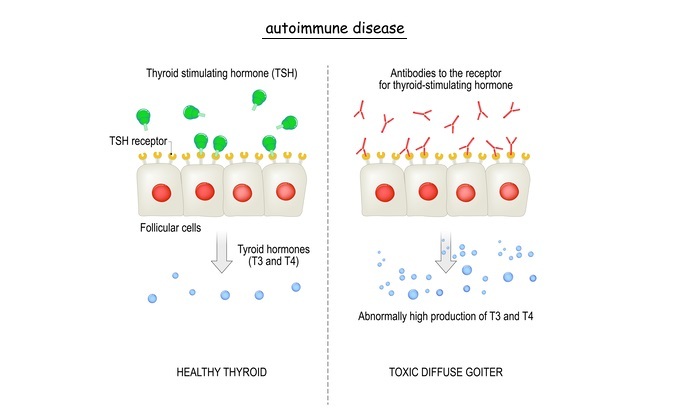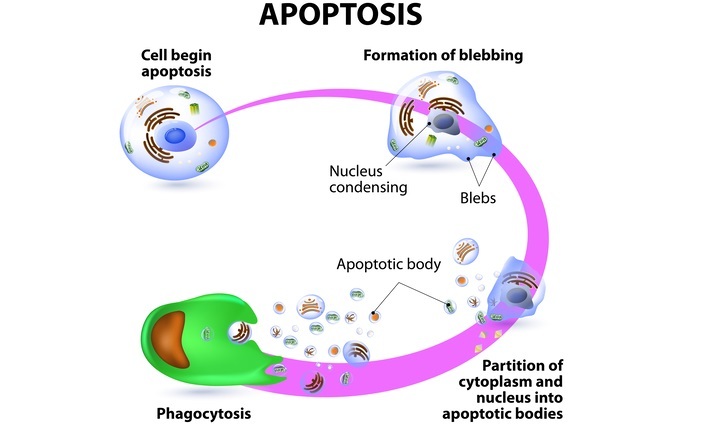
 Data Structure
Data Structure Networking
Networking RDBMS
RDBMS Operating System
Operating System Java
Java MS Excel
MS Excel iOS
iOS HTML
HTML CSS
CSS Android
Android Python
Python C Programming
C Programming C++
C++ C#
C# MongoDB
MongoDB MySQL
MySQL Javascript
Javascript PHP
PHP
- Selected Reading
- UPSC IAS Exams Notes
- Developer's Best Practices
- Questions and Answers
- Effective Resume Writing
- HR Interview Questions
- Computer Glossary
- Who is Who
Clonal Deletion: Complete vs Incomplete Deletion
Introduction
Clonal deletion is a critical process in the development and regulation of the immune system. It is the process by which the body's immune system eliminates self-reactive lymphocytes, which can potentially cause autoimmune diseases. Clonal deletion is a complex process, and there are two types of clonal deletion: complete and incomplete deletion. In this tutorial, we will discuss the differences between complete and incomplete deletion, their mechanisms, and their importance in the immune system.

Complete Clonal Deletion
Complete clonal deletion, also known as negative selection, is the process by which self-reactive lymphocytes are eliminated from the immune system. Self-reactive lymphocytes are those that recognize and respond to the body's own tissues and organs. The elimination of these cells is essential to prevent autoimmune diseases.
The mechanism of complete clonal deletion involves the interaction of self-antigens with lymphocytes during their development. Self-antigens are present in the thymus, where T cells undergo maturation. The T cells interact with the self-antigens presented by thymic epithelial cells.
T cells that have high-affinity interactions with self-antigens are eliminated via apoptosis or programmed cell death.

Complete clonal deletion is a highly efficient process, and the majority of self-reactive lymphocytes are eliminated during development. This process is critical in preventing autoimmune diseases, where the immune system attacks the body's own tissues and organs.
Incomplete Clonal Deletion
Incomplete clonal deletion, also known as partial deletion, is the process by which self-reactive lymphocytes are not completely eliminated from the immune system. These lymphocytes can potentially cause autoimmune diseases by attacking the body's own tissues and organs.
The mechanism of incomplete clonal deletion is not fully understood. It is thought that incomplete clonal deletion occurs when the affinity of self-antigens to lymphocytes is low. The low affinity interactions do not trigger apoptosis, and the lymphocytes escape deletion.
Incomplete clonal deletion is not as efficient as complete clonal deletion. It allows for the presence of self-reactive lymphocytes in the immune system, which can potentially cause autoimmune diseases. However, incomplete clonal deletion is necessary for the diversity of the immune system, as it allows for the development of a broader range of antigen-specific lymphocytes.
Differences Between Complete and Incomplete Clonal Deletion
Complete and incomplete clonal deletion differ in several ways, a few of which are discussed below -
The primary difference is the efficiency of the process. Complete clonal deletion is a highly efficient process that eliminates the majority of self-reactive lymphocytes. In contrast, incomplete clonal deletion is not as efficient and allows for the presence of self-reactive lymphocytes in the immune system.
Another difference is the mechanism of the process. Complete clonal deletion involves high-affinity interactions between self-antigens and lymphocytes, triggering apoptosis. In contrast, incomplete clonal deletion occurs when the affinity of self-antigens to lymphocytes is low, allowing the lymphocytes to escape deletion.
The importance of complete and incomplete clonal deletion also differs. Complete clonal deletion is critical in preventing autoimmune diseases by eliminating self-reactive lymphocytes. In contrast, incomplete clonal deletion is necessary for the diversity of the immune system, allowing for the development of a broader range of antigen-specific lymphocytes.
The Importance of Clonal Deletion in the Immune System
Clonal deletion is a critical process in the development and regulation of the immune system. It allows for the elimination of self-reactive lymphocytes that can potentially cause autoimmune diseases.
Clonal deletion also allows for the diversity of the immune system, allowing for the development of a broader range of antigen-specific lymphocytes.
Clonal deletion is essential for maintaining immune tolerance, which is the ability of the immune system to recognize and respond to foreign antigens while ignoring self-antigens.
Immune tolerance is necessary to prevent autoimmune diseases, where the immune system attacks the body's own tissues and organs.
In addition to its role in immune tolerance, clonal deletion is also essential in the development of immune memory.
Immune memory is the ability of the immune system to remember and respond more quickly and effectively to antigens it has encountered before.
Clonal deletion allows for the selection and expansion of antigen-specific lymphocytes, which can then form memory cells.
Implications of Incomplete Clonal Deletion
While incomplete clonal deletion is necessary for the diversity of the immune system, it also has implications for autoimmune diseases.
The presence of self-reactive lymphocytes in the immune system increases the risk of autoimmune diseases.
-
Autoimmune diseases are a group of diseases where the immune system attacks the body's own tissues and organs.
Examples of autoimmune diseases include multiple sclerosis, rheumatoid arthritis, and lupus. The causes of autoimmune diseases are not fully understood but they are thought to involve genetic, environmental, and immunological factors.
Conclusion
Clonal deletion is a critical process in the development and regulation of the immune system. It allows for the elimination of self-reactive lymphocytes that can potentially cause autoimmune diseases. Clonal deletion is a complex process, and there are two types of clonal deletion: complete and incomplete deletion.
Complete clonal deletion is a highly efficient process that eliminates the majority of self-reactive lymphocytes. In contrast, incomplete clonal deletion is not as efficient and allows for the presence of self-reactive lymphocytes in the immune system.
Whereas, incomplete clonal deletion is necessary for the diversity of the immune system, allowing for the development of a broader range of antigen-specific lymphocytes. While incomplete clonal deletion is necessary for the diversity of the immune system, it also has implications for autoimmune diseases.
Further research is needed to fully understand the mechanisms of clonal deletion and its implications for autoimmune diseases. Understanding the complex processes involved in the development and regulation of the immune system is critical in the prevention and treatment of autoimmune diseases.

